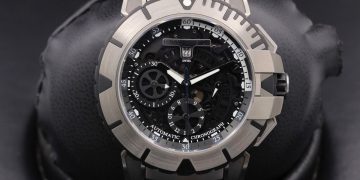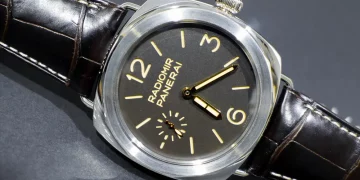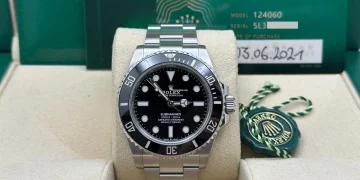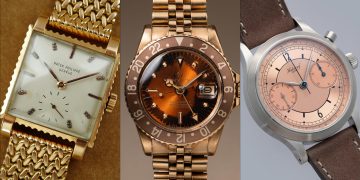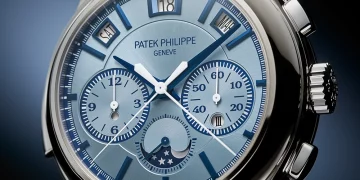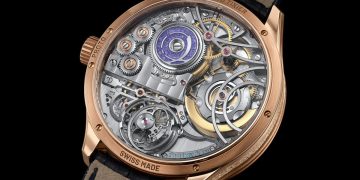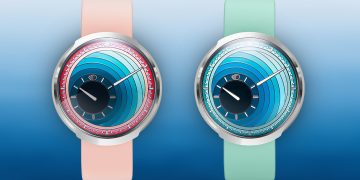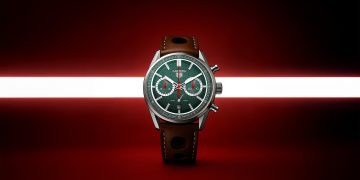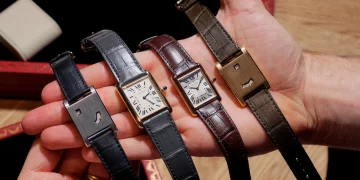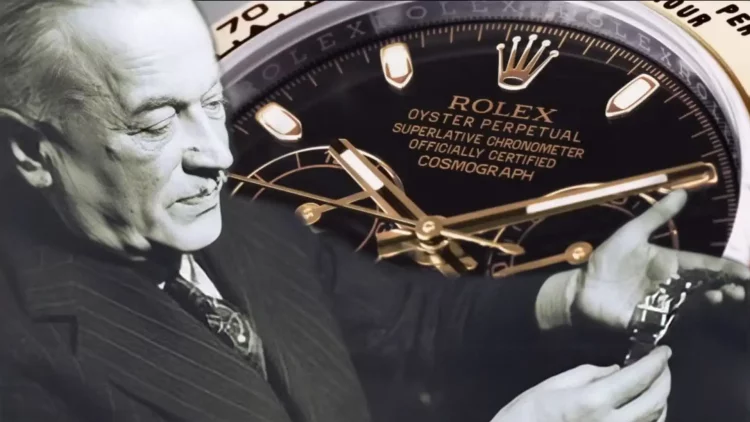The origins of a luxury watch brand often trace back to the vision and aspirations of its founder. The background, values, and expertise of these founders significantly impact the direction, ethos, and reputation of the brand they create. The founder’s personal journey, skills, and beliefs often leave a lasting imprint on the brand’s identity, its design philosophy, and how it is perceived in the marketplace. In the highly competitive world of horology, where legacy and heritage are of paramount importance, the founder’s background can play a pivotal role in shaping a brand’s long-term development and its enduring reputation.
This article will explore how the background and personal characteristics of the founders of prominent watch brands influence their brands’ trajectories, the way they are perceived by consumers, and their sustained success in the luxury watch market.
1. The Visionary Founders: Shaping a Brand’s Identity
a. Innovation and Creativity
Many of the most successful watch brands were founded by individuals with a deep passion for innovation and creativity. The visionary founders did not merely want to create timepieces, but rather redefine watchmaking and bring something new to the market. For example, Patek Philippe, founded in 1839 by Antoni Patek and Adrien Philippe, has always been synonymous with innovation in watchmaking. Philippe’s background as a watchmaker and engineer led to the creation of revolutionary mechanisms, such as the perpetual calendar and the minute repeater, which set the brand apart from its competitors.
Similarly, Rolex owes much of its legendary status to the vision of its founder, Hans Wilsdorf, who sought to create watches that were not only precise but also durable and practical. Wilsdorf’s pioneering innovations, including the introduction of the Oyster case in 1926 (the world’s first waterproof watch case), laid the foundation for Rolex’s global success. His vision for perfection and reliability has become ingrained in the brand’s identity and continues to define its philosophy today.
b. Personal Philosophy and Brand Culture
The personal philosophies and values of founders can have a profound effect on the ethos of the brand, creating a unique culture that shapes the products and consumer experiences. For instance, Omega was founded by Louis Brandt in 1848. Omega’s dedication to precision and reliability was driven by Brandt’s background in watchmaking and his desire to create timepieces that would stand up to the most rigorous of conditions. Over the years, Omega has remained faithful to Brandt’s commitment to superior craftsmanship and technical achievement, which continues to resonate with consumers today, especially through the brand’s precision timekeeping in space exploration and Olympic Games.
Likewise, the ethos behind Audemars Piguet is tied to the company’s founding fathers: Jules-Louis Audemars and Edward Piguet, who were both exceptionally skilled watchmakers with a deep commitment to craftsmanship and technical excellence. Their emphasis on innovative complications and hand-finishing is still central to the brand’s approach to watchmaking, giving it a reputation for luxury and sophistication.
2. The Role of Founders in Establishing Brand Heritage
a. Influence on Craftsmanship and Design Philosophy
The founders’ influence extends beyond the company’s creation—they also play a fundamental role in shaping the design philosophy that continues to resonate with customers. Watchmakers like Breguet, founded by Abraham-Louis Breguet in 1775, were pioneers in their time. Breguet’s background as a skilled craftsman led to several ground-breaking innovations, such as the tourbillon, self-winding mechanism, and the famous Breguet hands. These inventions laid the groundwork for a legacy of watchmaking innovation that the brand still prides itself on today.
Abraham-Louis Breguet’s deep understanding of both aesthetics and engineering allowed him to create timepieces that were not only mechanically advanced but also beautiful. His influence continues to shape Breguet’s modern-day design, which is rooted in classical elegance and technical mastery. This heritage of refined design and mechanical excellence has allowed Breguet to maintain its prestige as one of the finest luxury watch brands for over two centuries.
b. Sustaining the Brand’s Identity
In many cases, the founder’s personal commitment to excellence and the quality of their products become part of the brand’s DNA, forming a legacy that transcends the individual. For instance, Jaeger-LeCoultre, often referred to as the “watchmaker’s watchmaker,” was founded in 1833 by Antoine LeCoultre. His background as a watchmaker and his desire to build highly precise and reliable timepieces have given rise to a brand renowned for its innovative movements and refined craftsmanship. Jaeger-LeCoultre’s emphasis on mechanical perfection and technical mastery was deeply influenced by LeCoultre’s personal standards, and these ideals continue to define the brand today.
3. The Founder’s Role in Establishing Reputation and Trust
a. Reputation as a Mark of Quality
The founder’s background often sets the stage for the reputation of the brand, as their personal involvement in the company typically leads to high standards of craftsmanship and an unwavering commitment to quality. For example, Vacheron Constantin, founded in 1755 by Jean-Marc Vacheron, quickly became recognized for producing watches of exceptional workmanship and precision. Vacheron’s background as a highly skilled watchmaker laid the foundation for a brand that would go on to earn the reputation as one of the world’s most prestigious watchmakers. Vacheron Constantin’s legacy, built on excellence and innovation, has allowed it to maintain its standing as a key player in the high-end watchmaking market.
In the case of IWC Schaffhausen, its founder, Florian G. Lang, had a background in engineering and used his technical expertise to create high-performance timepieces. IWC’s reputation for precision engineering and functional design grew as a result of Lang’s vision to create watches that could withstand the most demanding environments. Today, IWC is known for producing robust, functional, and beautifully designed timepieces, continuing the legacy of its founder’s passion for engineering excellence.
b. Founders as Brand Ambassadors
The founder’s public persona often serves as the first brand ambassador, and their influence can directly shape the public’s perception of the brand. For example, Hans Wilsdorf of Rolex was not only a skilled businessman but also a highly charismatic figure. His personal belief in creating the best watches and his relentless pursuit of perfection helped cement Rolex’s reputation as the ultimate symbol of success and precision in the luxury watch market. Wilsdorf’s hands-on approach in branding and his vision for the Rolex name made the brand synonymous with prestige, and his influence continues to permeate Rolex’s marketing and positioning today.
Similarly, the legacy of Léon Breitling, founder of Breitling, helped shape the brand’s image as a pioneer in aviation timepieces. His dedication to precision and aviation-focused designs set the stage for the brand’s modern-day identity as a manufacturer of chronographs and aviation watches. The founder’s emphasis on functionality, combined with an aesthetic appeal, continues to influence Breitling’s products and brand ethos.
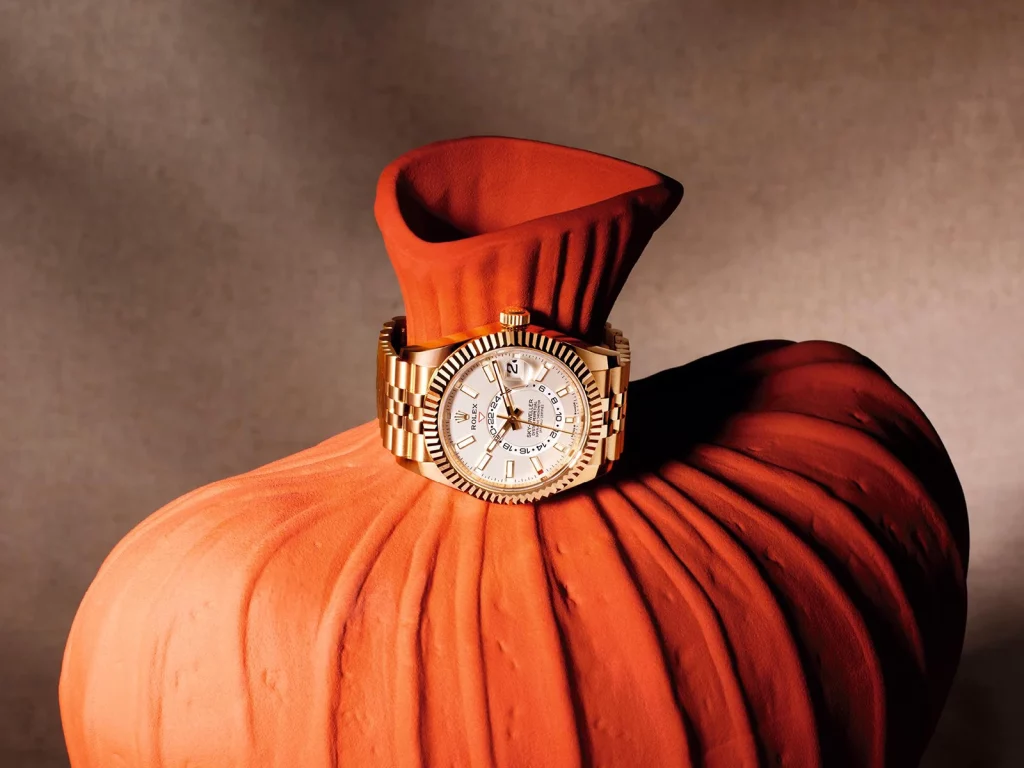
4. The Importance of Family Legacy in Watchmaking Brands
a. Continuity of Values and Expertise
For many watch brands, particularly those that are family-owned, the continuity of values and expertise passed down from one generation to the next plays a critical role in maintaining the integrity and reputation of the brand. Family-run businesses tend to maintain a strong sense of tradition, and the watchmaker’s craft is often handed down from one generation to the next. This continuity creates a consistent standard of excellence, which allows the brand to endure over time.
Vacheron Constantin, for example, has maintained its reputation as one of the world’s oldest and most prestigious watchmaking houses through the continued influence of its founder’s descendants and the careful stewardship of the brand’s heritage. The family’s ongoing commitment to preserving the craftsmanship and quality established by Jean-Marc Vacheron ensures that the brand’s values are consistently upheld.
In the case of Breguet, the Breguet family was instrumental in the brand’s early development and in preserving its heritage. After Abraham-Louis Breguet’s death, his descendants continued to produce watches bearing his name, upholding his legacy of elegance and innovation. Even today, Breguet’s reputation continues to reflect the values instilled by its founder.
5. Conclusion: The Lasting Influence of the Founder’s Background on Brand Success
The background of a watch brand’s founder plays a crucial role in shaping the brand’s long-term development and its reputation. The founder’s vision, skills, and values often provide the foundation for the brand’s identity, philosophy, and success. Founders bring innovation, craftsmanship, and reputation to the brand, creating a legacy that will influence the brand’s trajectory for generations. Whether it is the passion for excellence, the pursuit of perfection, or the innovative spirit of the founder, these qualities are embedded in the brand’s DNA and shape its ongoing reputation and market positioning.
As watchmaking brands continue to evolve, their founder’s background will always remain a key factor in their success, ensuring that their legacy endures in an ever-changing world.



